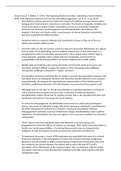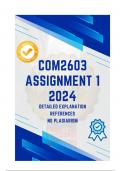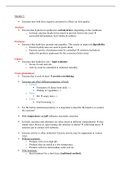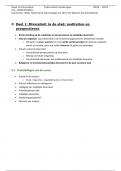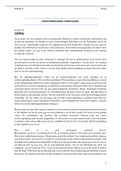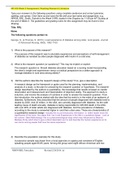Samenvatting
Summary Crisis and security management readings week 4
Schuurman, B. & Bakker, E. (2016), Reintegrating jihadist extremists: evaluating a Dutch initiative, . Behavioral Sciences of Terrorism and Political Aggression, vol. 8, no. 1, pp. 66-85. Weggemans, D., Bakker, E. and Grol, P. (2014),’Who are they and why do they go? The Radicalization and Pr...
[Meer zien]
